Technical SEO

HTTP Status Codes Google Cares About (And Those It Ignores)
Google's Search Relations team shares which HTTP status codes matter most for SEO. Learn how redirects, 1xx codes, and network errors impact your site's performance.
- Google only cares if redirects are permanent or temporary.
- Google ignores 1xx status codes completely.
- Network errors in Search Console often come from deeper technical layers.

How To Use LLMs For 301 Redirects At Scale
Redirects are essential to every website’s maintenance, and managing redirects becomes really challenging when SEO pros deal with websites containing millions of pages.
Off-Page SEO

‘Search everywhere’ doesn’t mean ‘be everywhere’
Let me be clear: “search everywhere” was never about showing up for everyone. It’s about showing up with purpose – where your audiences are already searching. This article:
- Breaks down what “search everywhere” actually means in a world where search is democratized and discovery is driven by shifting user behavior.
- Explores how to build a strategy that respects platform nuance and audience intent.
How to diversify your traffic sources to reduce search reliance
Organic traffic is shrinking, especially for informational keywords. Features like Google’s AI Overviews now deliver direct answers, often without users clicking a link.
If your business relies mostly on search, you’re more vulnerable than ever. To survive and thrive, you need to build traffic sources you control.
In this article, I’ll show you what’s changing with organic search, why diversification is critical, and exactly how to create multiple traffic streams that protect your growth for the long term.
Local SEO

Local SEO ‘Best Practices’ Aren’t Universal: Yext Study
A study of 8.7M Google results finds review engagement correlates strongest with Local Pack visibility, with tactics varying by industry.
- A Yext study finds common SEO advice doesn't work for every industry.
- Local search factors vary by region and vertical.
- Managing customer reviews has the most positive impact on local search performance.
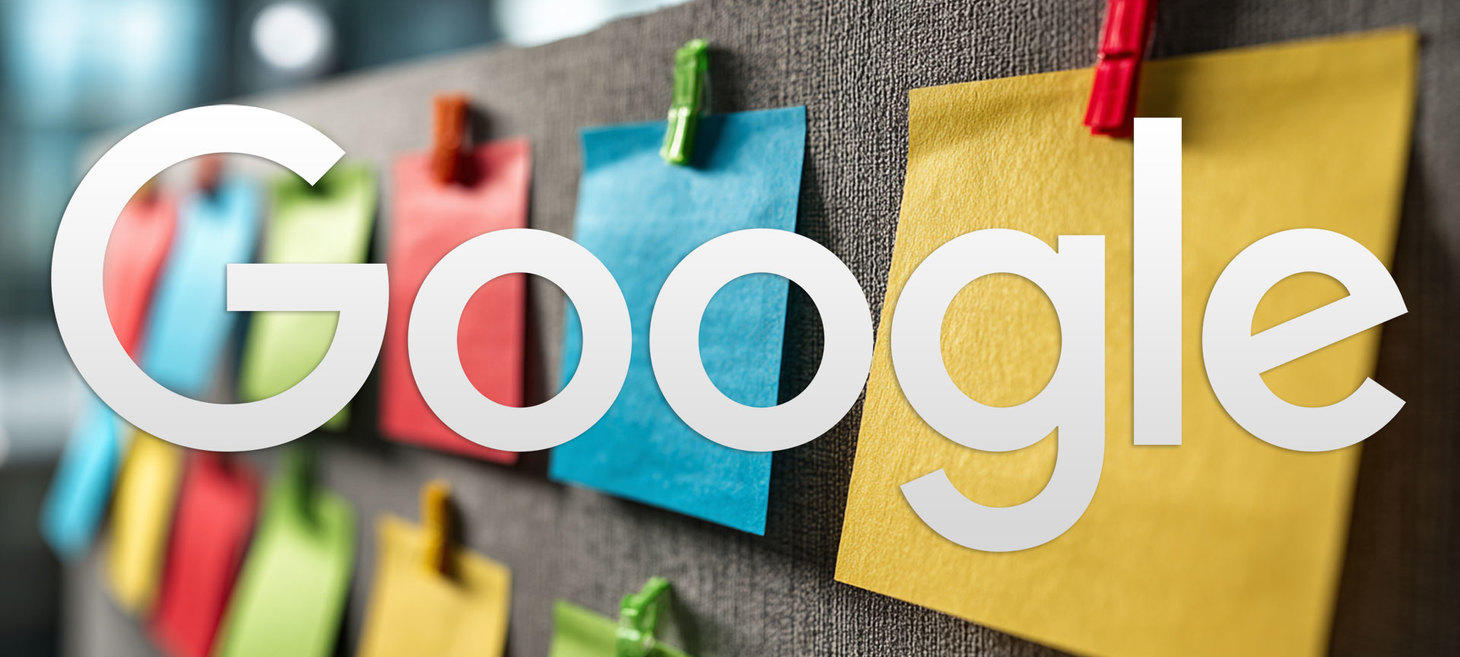
Google Business Profiles Posts creation tool refreshed
Google has updated the Google Posts creation tool within Google Business Profiles. The update makes it easier to use, by placing all the posts in a centralized location with an easier way to manage those posts.
This update should be live for all of you by now, as it quietly launched last Friday.
International SEO

The web is multilingual – so why does search still speak just a few languages?
Despite thousands of languages spoken worldwide, only a small fraction are meaningfully represented online.
Most of what we see in search results, AI outputs, and digital platforms is filtered through just a handful of dominant languages – shaping not only what we find, but whose knowledge counts.

Can AI read Arabic? What we’ve learned (so far)
it seems that while AI development is thriving in the English language, in other languages, it’s not quite as impressive. Arabic is one of the languages that is struggling to keep up with the rise of AI.
Or more accurately, AI is struggling to keep up with Arabic. It often spits out disjointed gibberish that misses the mark on the nuance of the language. Understanding the target audience’s language and preferences is crucial for effective AI content optimisation, especially in diverse regions like the UAE. Do it right and it can increase organic traffic and visibility in AI search results, driving more traffic to your site and improving business outcomes.
Image SEO

Google: Unique Image Landing Pages Can Help Search Visibility
Google’s John Mueller says giving each image its own landing page can help it appear in image search, while gallery setups may limit visibility.
- Google recommends unique landing pages for important images instead of JavaScript-only galleries or URL fragments.
- Responsive images and modern formats improve user experience but aren’t direct ranking factors.
- Auditing your site’s image URLs could reveal search visibility gains you’re currently missing.
Google Updates Image SEO Best Practices: Use Consistent URLs
Google's updated image SEO best practices recommend using consistent URLs for images across your site to preserve crawl budget.
- Google recommends using the same image URL across your site.
- Inconsistent image URLs can waste your crawl budget.
- Wasted crawl budget can limit how many pages Google indexes on your site.
Search Engine Advertising (PPC)

Google Gemini is the most trusted LLM for PPC strategy
Advertisers are leaning into AI to help optimize pay-per-click (PPC) campaigns. But how reliable is that AI guidance?
Five popular AI tools – ChatGPT, Google AI Overviews, Google Gemini, Perplexity, Meta AI – were asked 45 PPC-related questions by data Insights company WordStream by LocaliQ.
The result? One in five answers were flat-out wrong.
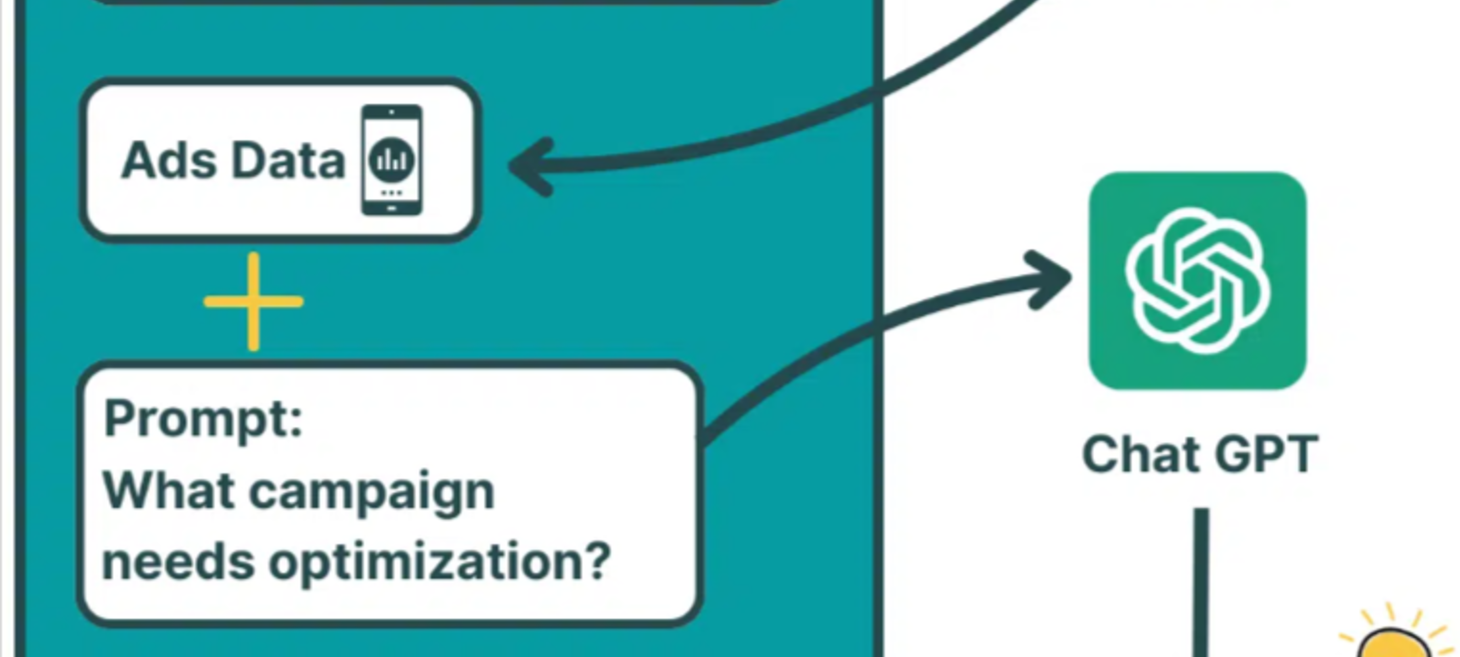
4 ways to connect your ads data to generative AI for smarter PPC
When AI has access to the right data, it stops guessing and starts acting like a strategist.
This article outlines four practical ways to connect your ads data to generative AI and start getting truly useful, data-driven results.
Google Ads (Search Network)

Is Your Conversion Data Misleading You? 7 Common Google Ads Tracking Issues
Conversion data will only be useful for you if it’s accurate. Serious missteps can happen if you rely on Google Ads to optimize performance when it has misleading or incomplete conversion tracking.
If your numbers are wrong, you’ll end up scaling the wrong campaigns, pausing the ones generating a positive return, or having a wrong idea of return on ad spend (ROAS) altogether – and this happens more often than you think.

How AI shapes Google's Search Ads rankings revealed in trial exhibit
rtificial intelligence (AI) plays a central role in how Google determines which ads appear in response to a search and how they are ranked.
The company uses a sophisticated machine learning (ML) infrastructure to handle almost every aspect of its Search Ads system — from understanding user queries to ranking ads based on value and engagement.
Here’s what we learned from trial exhibits revealed in the U.S. Department of Justice’s (DOJ) antitrust case against Google.
YouTube Ads

YouTube Lets Creators Pick Exact CTAs In Promote Website Ads
YouTube’s Promote tool now lets you choose specific calls to action for website traffic campaigns, like “Book now” or “Get quote."
- You can now select specific calls to action in YouTube's promote website visit campaigns.
- Promote campaigns can be set up entirely in YouTube Studio, avoiding the need for Google Ads.
- The update is desktop-only for now.
Want your ads on YouTube TV? Here’s what Google says you need
Google has outlined exactly what advertisers need to do to run campaigns on YouTube TV – from eligible formats to booking options – in a newly published help page.
Performance Max Campaigns
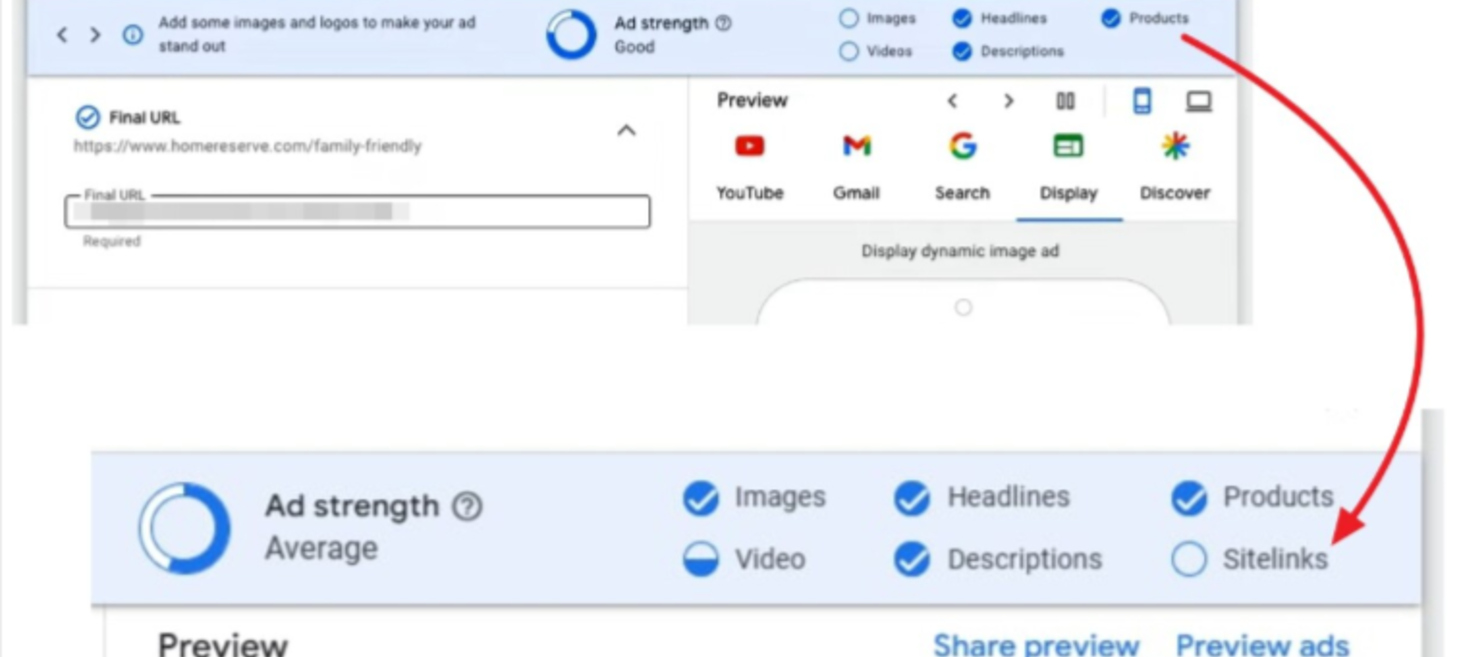
Sitelinks now factor into Google Performance Max ad strength
Google Ads updated how it calculates ad strength in Performance Max campaigns and sitelinks are now officially part of the equation.
Why we care. Sitelinks can boost engagement by offering users more paths to convert. Their absence could now drag down ad strength scores, potentially affecting campaign performance.
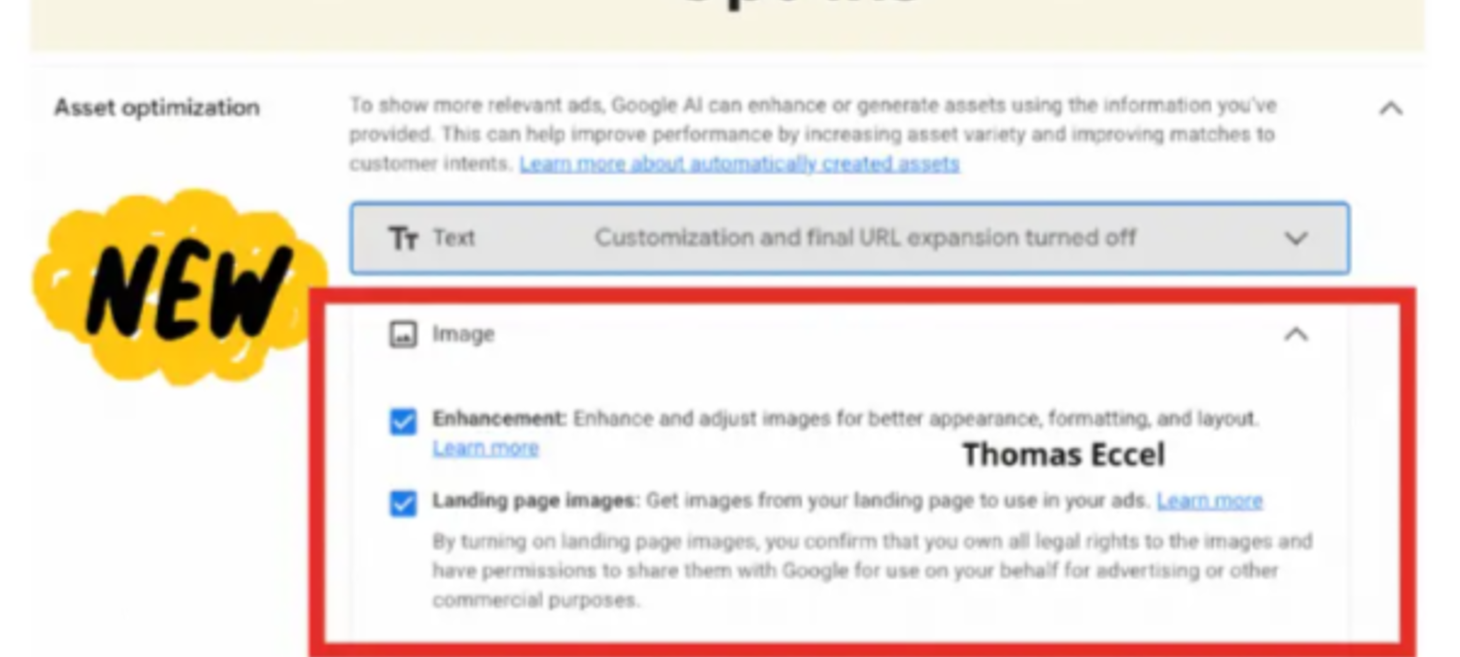
Google Ads Performance Max image optimization now rolling out
Google started rolling out new image optimization tools for Performance Max (PMax) campaigns. The feature, first announced last month, gives Google’s AI more control over how images appear in your ads.
The shift to default-on image enhancements signals deeper AI involvement in creative decisions, potentially affecting ad look, feel, and performance without advertiser awareness.
Demand Gen Ads
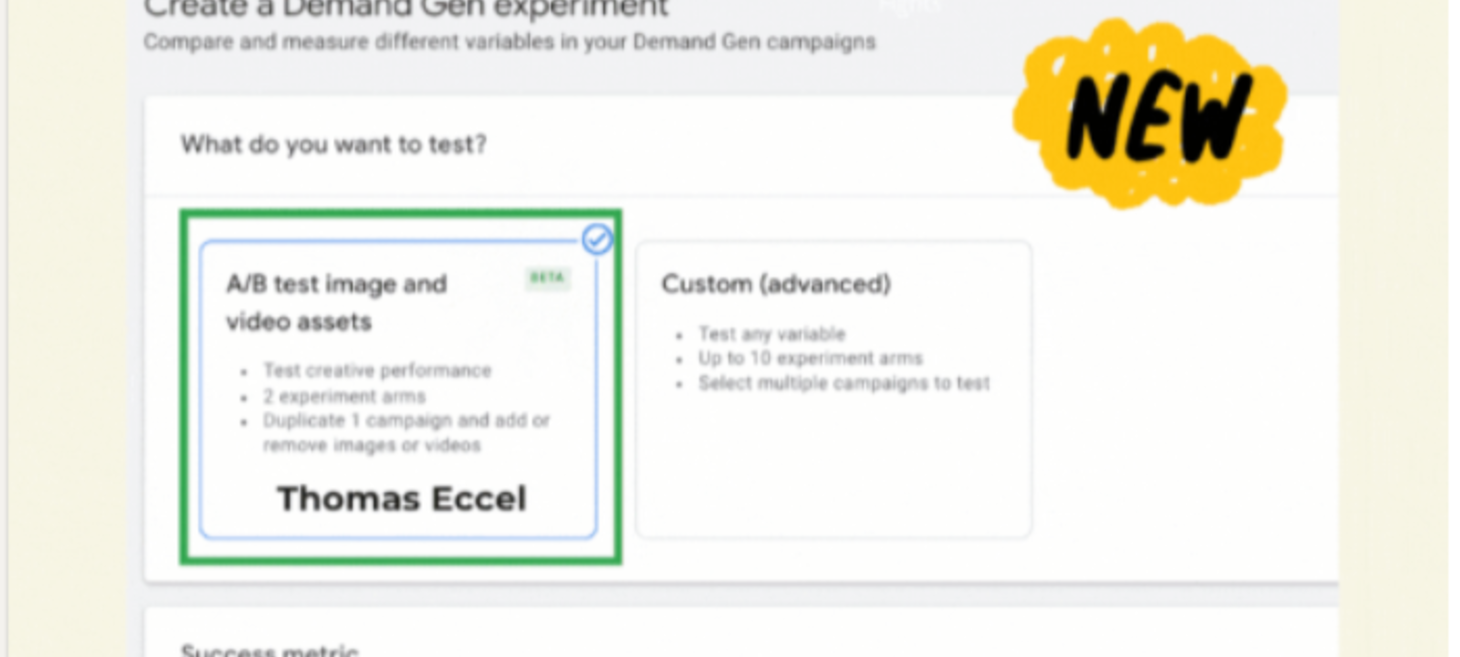
Google Ads lets you test images, videos in Demand Gen campaigns
Google is testing a new feature that allows advertisers to run A/B tests on images and videos within Demand Gen campaigns, marking a major step toward creative performance transparency. How it works:
- Create an A/B test with two experiment arms.
- Google duplicates the campaign for comparison.
- Add or remove images and/or videos in either arm.
- Set traffic split (commonly 50/50) and total budget.
- Define your experiment dates.

Google auto-upgrades Video Action Campaigns to Demand Gen
All existing Video Action Campaigns (VAC) in Google Ads are now automatically being upgraded to the newer Demand Gen format, as Google phases out VAC in favor of its more versatile and visual ad solution.
Why we care. Demand Gen campaigns are designed to better align with how users browse and discover products across YouTube, Google Discover, and Gmail. It supports multi-format creatives, enabling advertisers to combine video and image assets to drive up to 20% more conversions at the same cost per action (according to Google).
Content Marketing
How to optimize your 2025 content strategy for AI-powered SERPs and LLMs
In 2025, my LinkedIn feed became flooded with SEO thought leaders scrambling to define and stake their claim on the future of consumer search: generative engine optimization (GEO).
Yet, most industry experts face a stark reality – few truly understand how to influence brand visibility in AI-driven search platforms and large language models (LLMs), let alone explain what this shift means for search marketing or how brands can capitalize on it.
This article unpacks the rise of GEO, debunks common myths, and outlines what businesses must do to adapt before they fall behind.
Content marketing in 2025: 6 strategies you can't ignore
As marketers, we love to explore emerging strategies and trends to stay ahead of the curve. However, what’s relevant and effective is always changing, despite countless case studies and think-pieces predicting the next big trend.
Content marketing, in particular, is highly susceptible to speculation and testing because it is fluid and heavily influenced by consumers’ behaviors and interests at any given moment. This makes it interesting, innovative and challenging.
So, what are the predictions for content marketing in 2025? Let’s dive in.
Reviews & Reputation Management
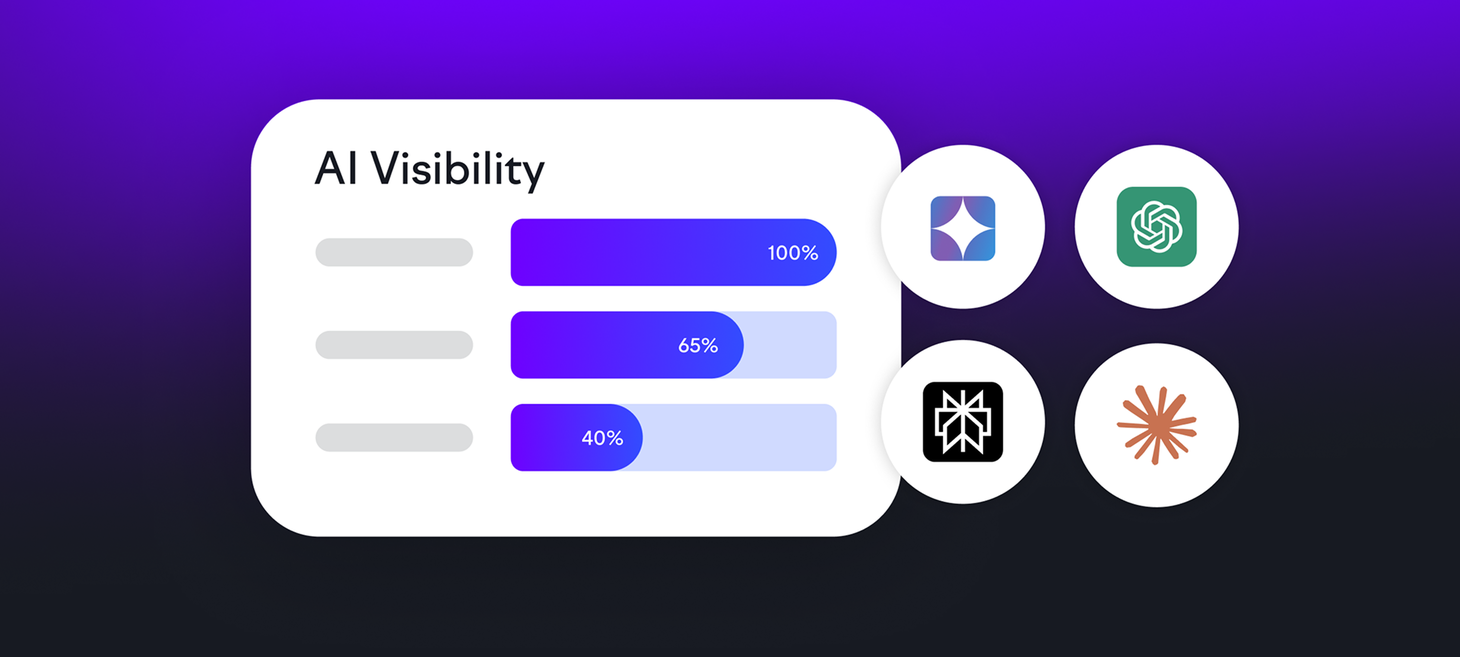
How to protect your brand reputation in AI search
How consumers discover and engage with brands is fundamentally changing. With millions now turning to AI search platforms for instant answers and recommendations, your brand’s visibility and reputation are increasingly shaped by how it is mentioned and portrayed in AI-generated responses.
This paradigm shift means brands can no longer solely rely on traditional SEO techniques; they must proactively manage their presence in this new zero-click environment to avoid being defined by AI search without their direct input or control.
The way AI search platforms and LLMs perceive and portray your brand is far from a peripheral concern but a central pillar of brand and reputation management.

Developing A Review & Brand Strategy Across 10 Or 100s Google Business Profiles
Google Business Profiles (GBPs) have become essential for local search visibility, customer confidence, and driving foot traffic, especially for businesses with dozens or hundreds of physical locations.
Each profile acts as a digital brand touchpoint that directly influences how your business ranks in local searches and how your brand is perceived by potential customers.
However, managing reviews and reputation at this scale is no easy task.
Lead Generation
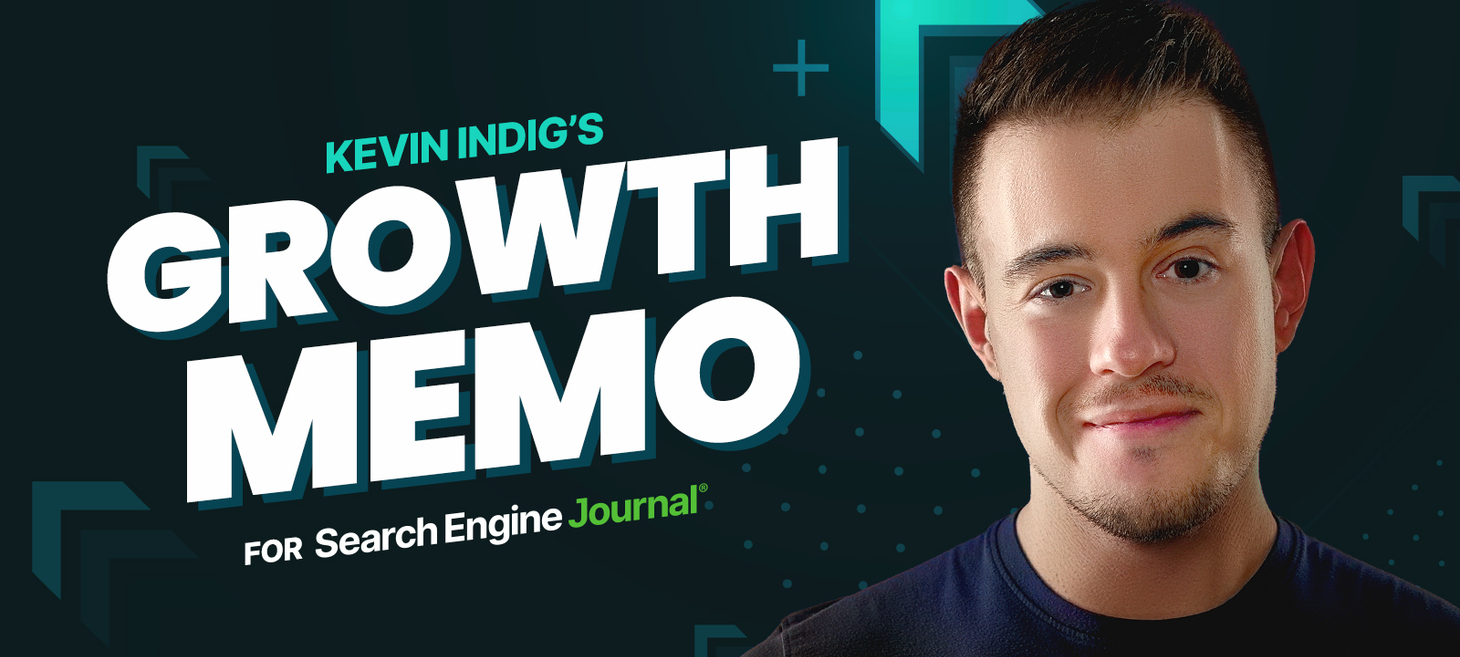
Is AI Cutting Into Your SEO Conversions?
In today’s Memo, I’m breaking down the five biggest forces I see behind SEO conversion declines across industries:
- Loss of top-of-the-funnel (TOFU) traffic (and why it matters more than you thought).
- Platform shifts pulling demand into other ecosystems.
- Channel shifts from organic to paid search.
- Attribution leakage that hides organic’s true impact.
- Macro factors pressuring conversion rates.
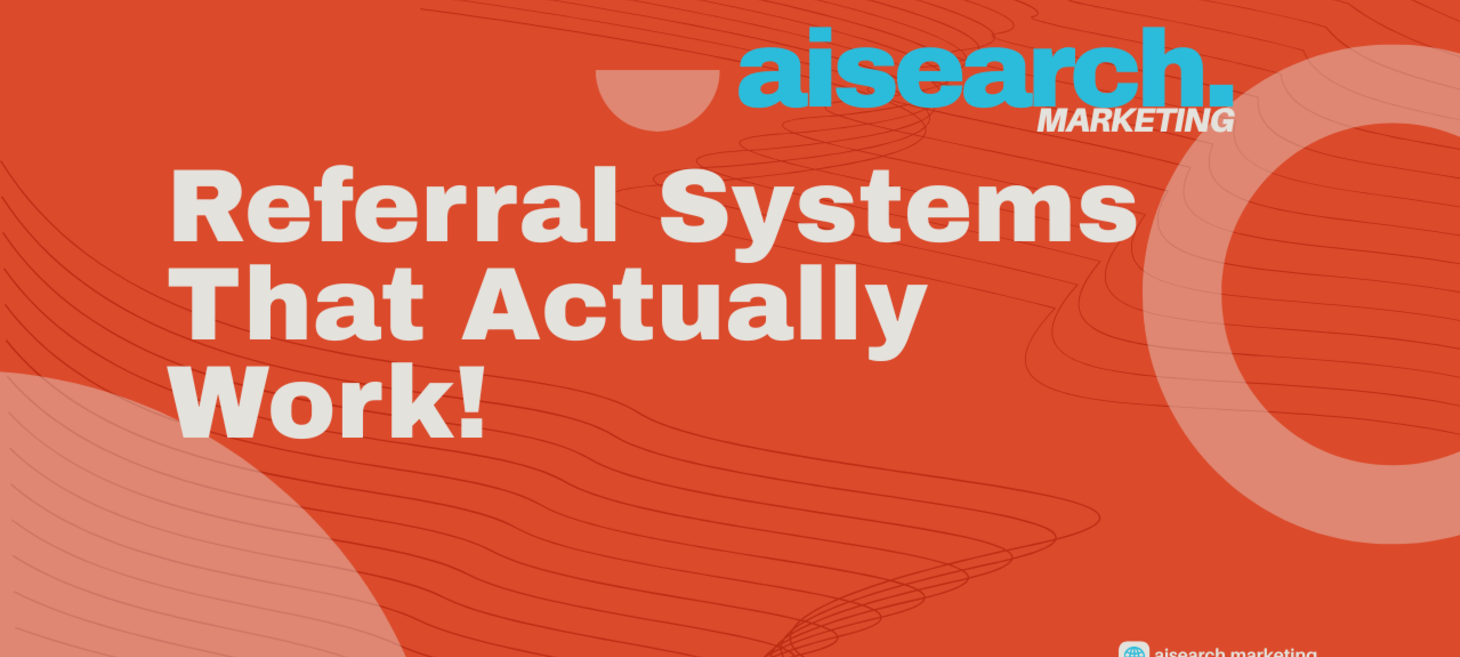
Referral Systems That Actually Work. Building a Consistent Pipeline of High-Quality Leads
Did you know that referred leads convert at 3-5 times the rate of non-referred prospects? Even more impressive, according to research from Kitces.com, the industry benchmark suggests that well-qualified referrals should convert at a minimum rate of 30-35%—far higher than any other lead source.
Yet here's the paradox that's always fascinated me despite these compelling numbers, most financial professionals I work with still treat referrals as happy accidents rather than systematic business processes.
Analytics & Reporting
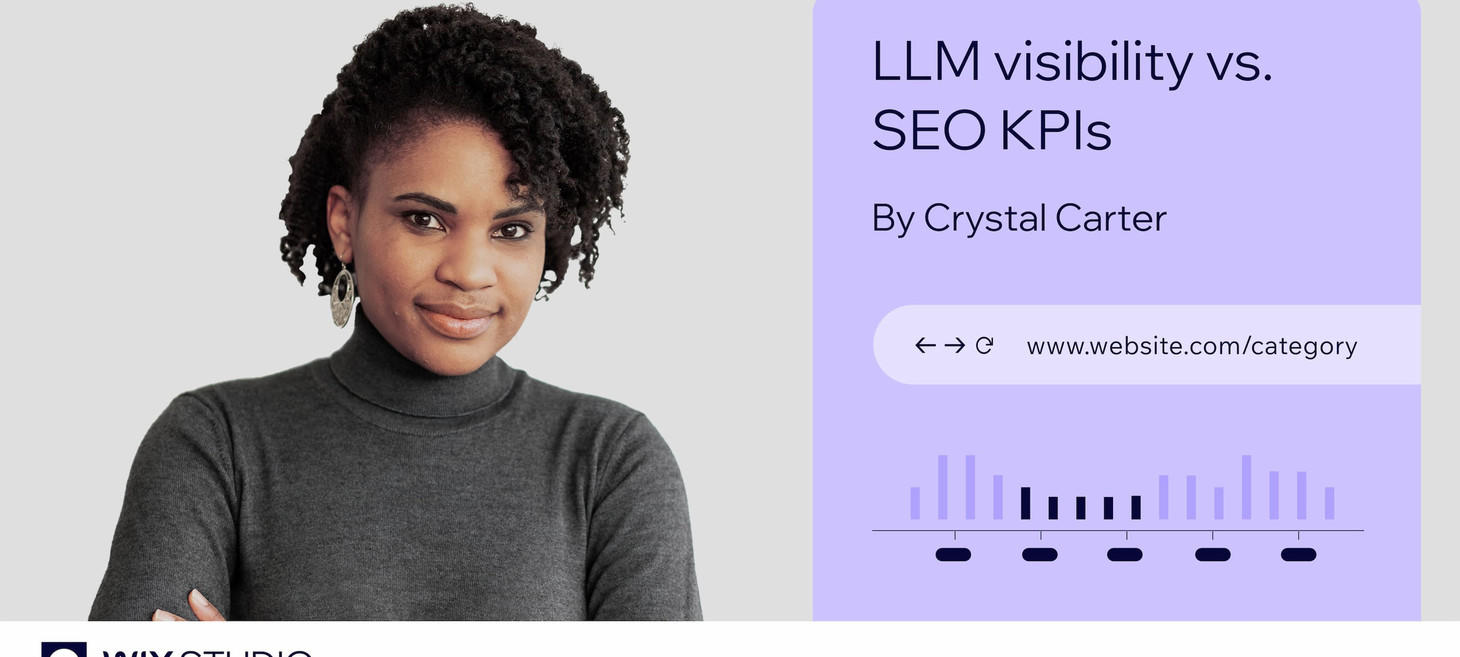
LLM visibility vs. SEO KPIs: Bridging the gap
Large language models (LLMs like ChatGPT, Perplexity, and Gemini) have emerged as the new frontier for digital marketing. It’s an exciting time, but this nascent tech also has SEOs scratching their heads over how to gauge their brand visibility in LLMs—and tie that visibility to business outcomes.
When it comes to measuring the impact of SEO for AI search and LLMs, there are a lot of overlaps between KPIs for traditional search engines and how you measure brand visibility in generative search tools.
In this blog post, I’ll walk you through these nuances so that you can start tracking your visibility in LLMs and make the most of your generative engine optimization efforts.
12 new KPIs for the generative AI search era
SEO teams have built dashboards around a shared set of familiar metrics for over two decades: clicks, rankings, impressions, bounce rate, link volume, etc. These KPIs powered strategies, reports, and… promotions.
But what happens when the interface between your audience and your brand no longer involves a search result page?
Ranking & Generation

LLM perception match: The hurdle before fanout and why it matters
Before an LLM matches your brand to a query, it builds a persistent perception of who you are, what you offer, and how well you fit the user’s need.
If you’re not perceived as the right match, your brand is quietly filtered out – before fanout, before relevance, before you even enter the race.
This is what I call LLM perception match (LPM) – the new eligibility filter for AI visibility. And it’s already happening inside ChatGPT and, likely, other LLMs.
If your perceived fit doesn’t align with the query’s intent, your content, links, and authority will not matter, and you will not be considered.
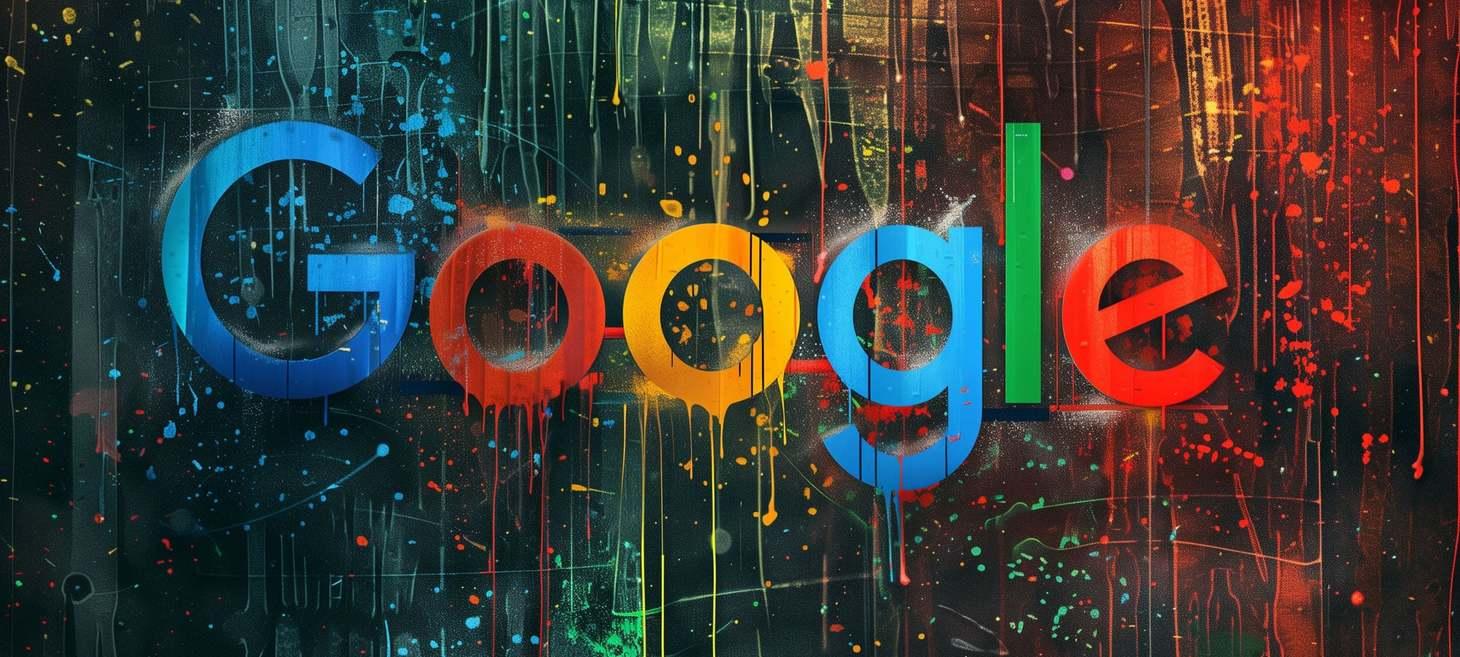
The ABCs of Google ranking signals: What top search engineers revealed
The U.S. Department of Justice released several new trial exhibits as part of the ongoing remedies hearing. These exhibits include interviews with two key Google engineers – Pandu Nayak and HJ Kim – which offer insights into Google’s ranking signals and systems, search features, and the future of Google.
